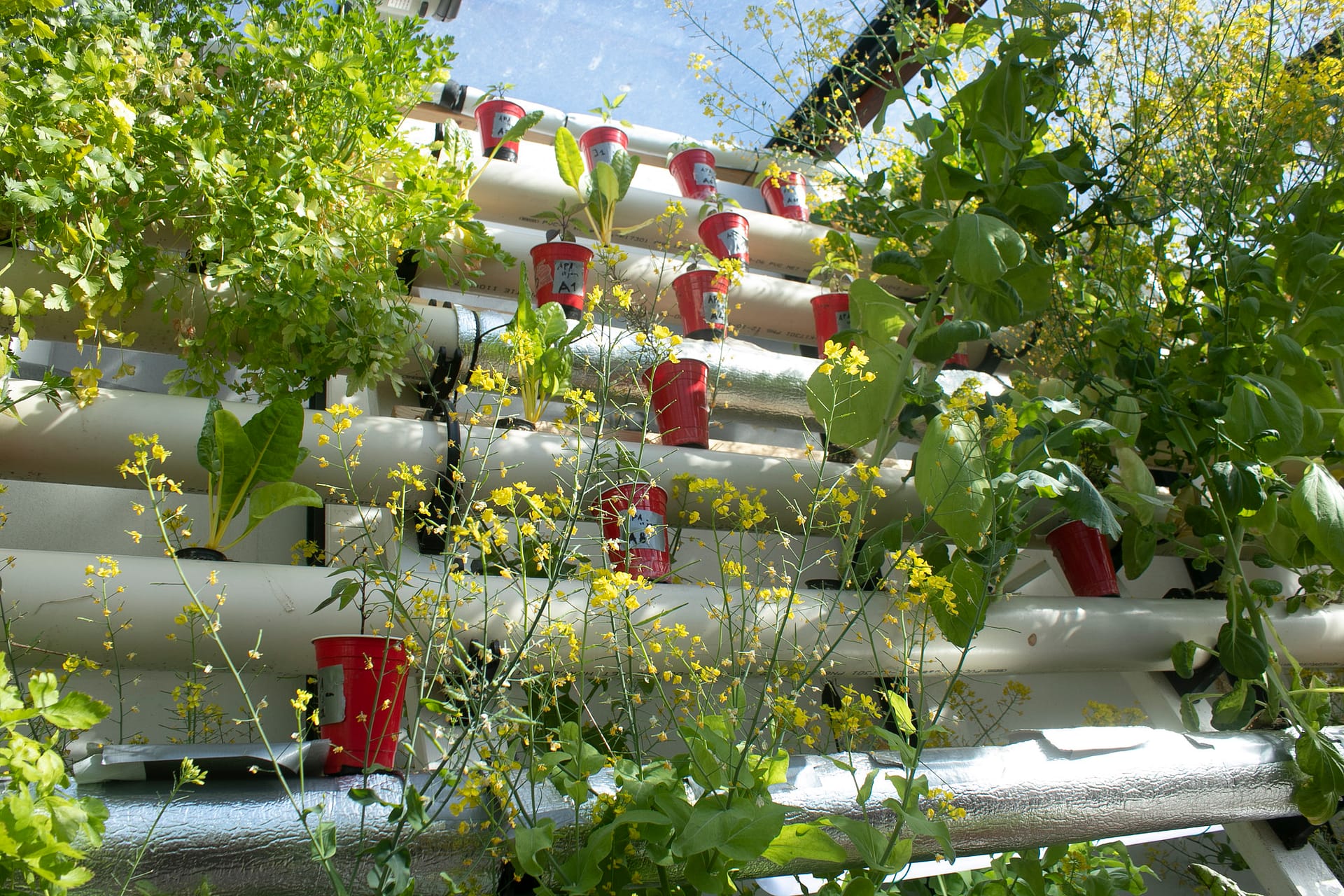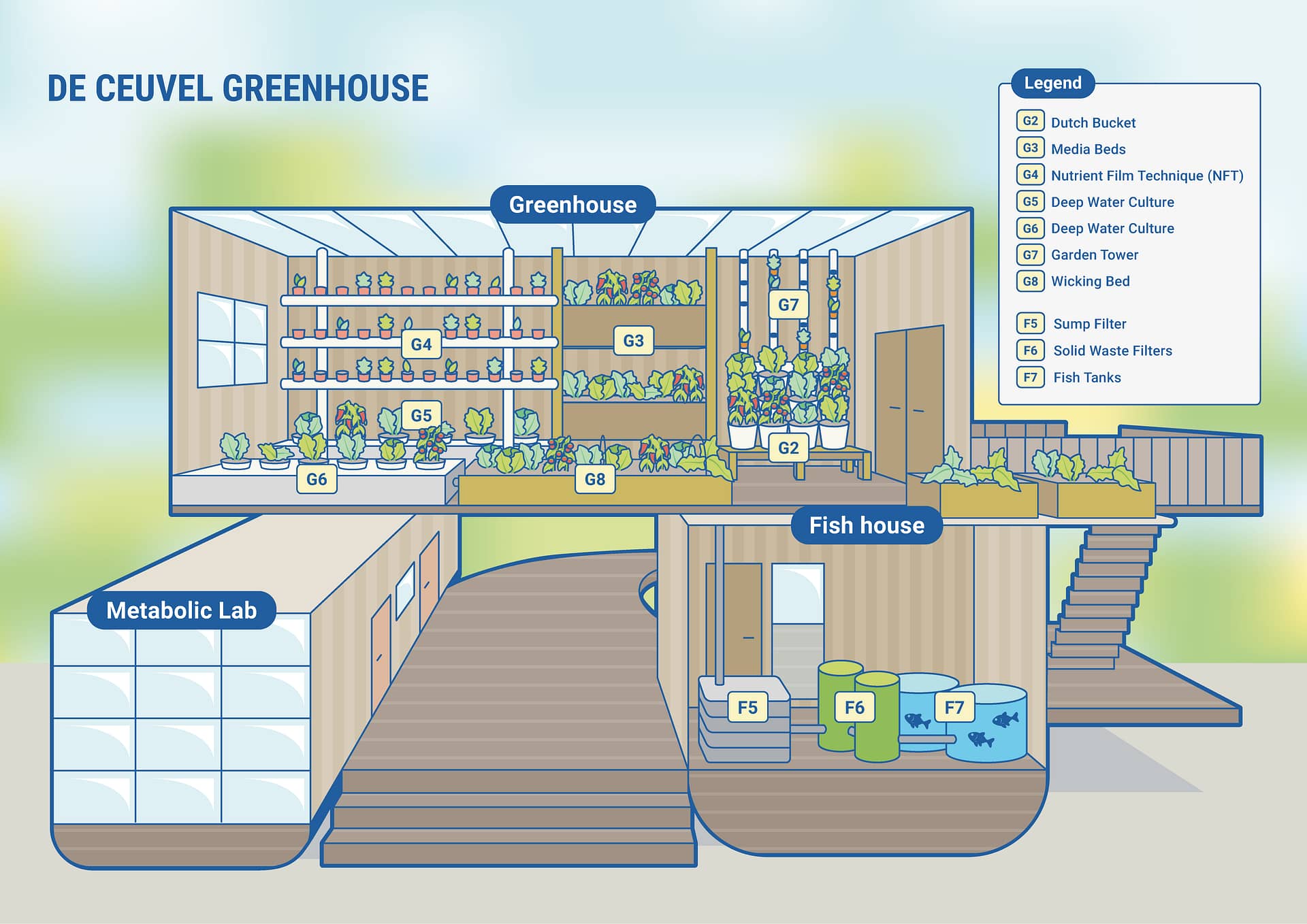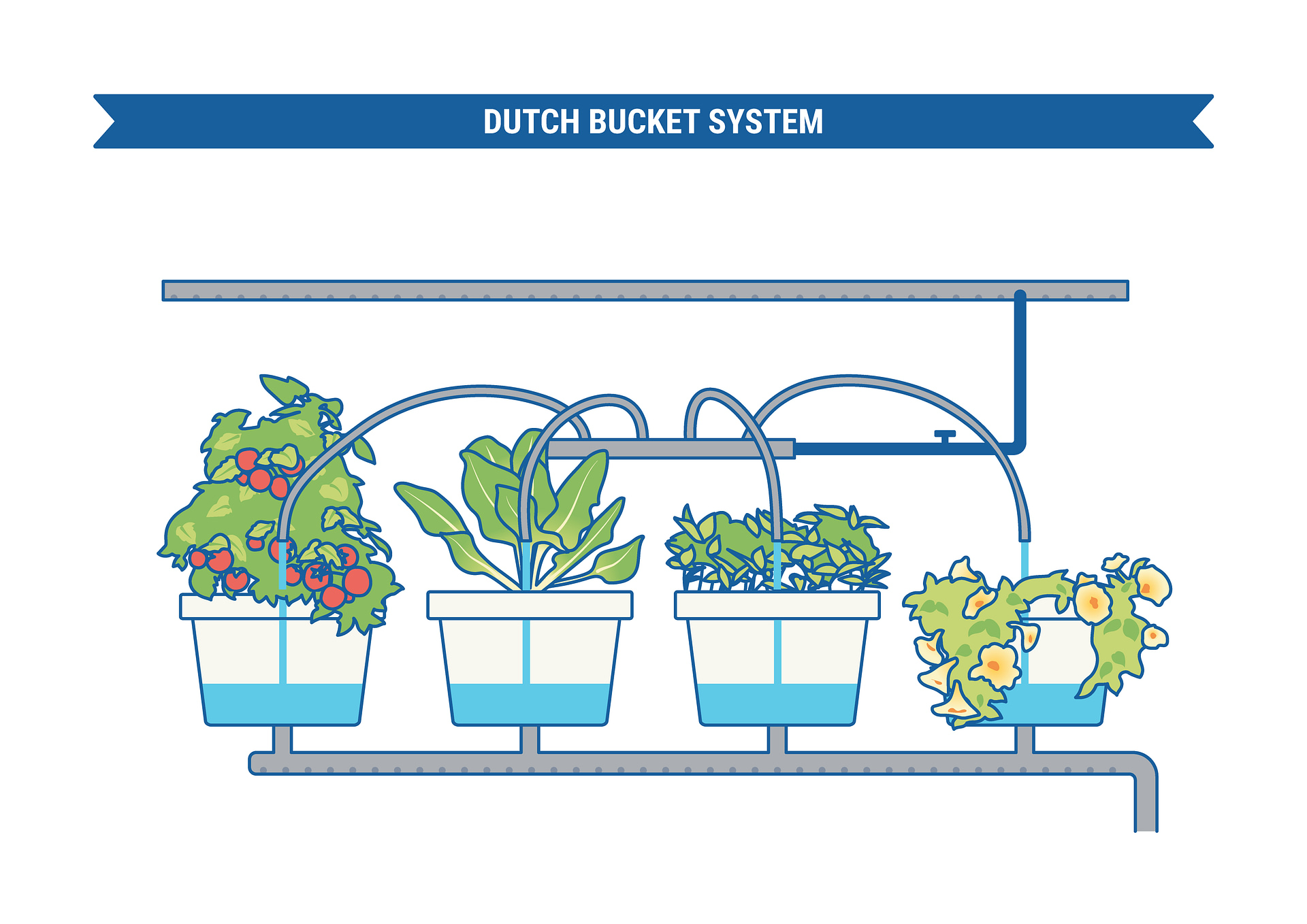The Aquaponics Greenhouse at De Ceuvel
An open-source aquaponics model promoting circular urban agriculture, educational outreach, and new technologies
Based in Amsterdam North, the Metabolic greenhouse uses aquaponics principles to show that it is possible to grow food with limited space and without viable soil. The greenhouse has been updated multiple times over the past several years, and is now a site for continuously developing and testing new technologies to upgrade its growing system. Research here focuses on key challenges that are critical to enable urban agriculture to be fundamentally sustainable.
- Partner: FoodE Consortium
- Date:
- 2015-2019: The first version of the aquaponics greenhouse
- 2020-2022: Renovation through the FoodE project
- 2022-2024: FoodE educational activities, and Metabolic workshops and tours
How can urban agriculture be sustainable?
The greenhouse is based at De Ceuvel, a former brownfield and repurposed industrial shipyard in Amsterdam North that has become a living lab for circular urban development. The aquaponics greenhouse was first created as a working space to show how humans can indeed not only live on polluted soil, but also grow food.
It is now one of 15 pilot projects developed through FoodE, a four-year H2020 EU-funded project (Grant Agreement n°862663) that explores citizen-driven and sustainable urban food initiatives. Through this program, subsequent research has focused on key challenges that need to be solved in order to enable urban agriculture to be fundamentally sustainable, including closing the nutrient loop and the feed production process.
An urban closed-loop system
Aquaponics is a combination of aquaculture (the farming of edible fish) and hydroponics (the growth of plants without soil). In simple terms, it combines fish and vegetable production in a closed-loop system, where fish waste provides nutrients for the plants, and the plants and bacteria filter the water for the fish to live in. It is one of the most efficient and least impactful farming methods.
Started in 2015, the greenhouse has been a continuous project and learning experience. Since becoming part of the FoodE project in 2020, the greenhouse has been upgraded to be a testbed for both high-tech and low-tech solutions. For instance, a struvite reactor has undergone multiple iterations. Rather than relying on additional, synthetic fertilizer, the urban aquaponics system recovers nutrients from the sewer system. The struvite crystallization process will be automated so that other communities can use it. To address another key environmental hotspot, the feed production process, Metabolic experimented with food waste as an alternative to traditional fish feed that is sourced from wild fish populations. We explored how food waste can be used to produce insect-based fish feed.
Inspiring and sharing knowledge with other urban communities
Today, six different methods are used to grow plants, such as edible flowers, leafy greens, hot peppers, and herbs. Fish, including catfish, koi carp, and trout, grow in the other half of the system, which includes a sump pump to redistribute water. Faithful to circular economy principles, some of these products are served on the menu at the adjacent cafe.
Showing that aquaponics is feasible in areas where farming may not otherwise be possible, the greenhouse inspires children and adults and teaches them how to grow healthy food locally. The greenhouse is an open-source farm, meaning that it can be replicated by anyone, anywhere, thanks to workshops and a manual that will be published in 2022. Designed with easy-to-source materials, the greenhouse can also be scaled to a commercial size.
We also created an innovative aquaponics software to manage the greenhouse more efficiently, with dashboards to monitor the different parts of the system. This open-source software will enable upscaling and replication to other urban communities.
- The Greenhouse is part of the European project FoodE
- Metabolic Article: Advancing aquaponics at the Metabolic greenhouse
- The Greenhouse is located at De Ceuvel













